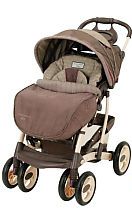
Uncle Dustin, who is accompanying me to China, sent a text msg. informing me that he had just finished getting poked with his second HepAB shot.
Way to go bro!
Now, while we are on the subject of shots…
Kristen had asked about shots for China in one of my previous posts. How did I learn about them, what to get, etc…
Heather, hates shots and wants to wait until the very last minute. To which I say, don’t!! Why?? Because the Hep A&B are a series of 3 shots that take about 4-6 months to complete. So, you can wait friend, but don’t wait
toooo long (I'm assuming you don't have your
HepA&B yet).
Kristen,
At some point during the
paperchase, my agency recommended I look at the
CDC website to determine which shots I would need for traveling to China. To save you a hop, skip and a jump, I’
ve posted the information from their website below.
From the Center for Disease Control website:
Vaccines for Your Protection: East Asia
Routine Vaccinations
Before travel, be sure you and your children are up to date on all routine immunizations according to schedules approved by the Advisory Committee on Immunization Practice (ACIP). See the schedule for adults and the schedule for infants and children. Some schedules can be accelerated for travel.
See your doctor at least 4–6 weeks before your trip to allow time for shots to take effect. If it is less than 4 weeks before you leave, you should still see your doctor. It might not be too late to get your shots or medications as well as other information about how to protect yourself from illness and injury while traveling.
Recommended Vaccinations and Preventive Medications
The following vaccines may be recommended for your travel to East Asia. Discuss your travel plans and personal health with a health-care provider to determine which vaccines you will need.
Hepatitis A or immune globulin (IG).
Transmission of hepatitis A virus can occur through direct person-to-person contact; through exposure to contaminated water, ice, or shellfish harvested in contaminated water; or from fruits, vegetables, or other foods that are eaten uncooked and that were contaminated during harvesting or subsequent handling.
Hepatitis B
especially if you might be exposed to blood or body fluids (for example, health-care workers), have sexual contact with the local population, or be exposed through medical treatment. Hepatitis B vaccine is now recommended for all infants and for children ages 11–12 years who did not receive the series as infants.
Japanese encephalitis
if you plan to visit rural farming areas and under special circumstances, such as a known outbreak of Japanese encephalitis.
Malaria
if you are traveling to a malaria-risk area in this region, see your health care provider for a prescription antimalarial drug. For details concerning risk and preventive medications, see Malaria Information for Travelers to East Asia.
Rabies
if you might have extensive unprotected outdoor exposure in rural areas, such as might occur during camping, hiking, or bicycling, or engaging in certain occupational activities.
Typhoid
particularly if you are visiting developing countries in this region. Typhoid fever can be contracted through contaminated drinking water or food, or by eating food or drinking beverages that have been handled by a person who is infected. Large outbreaks are most often related to fecal contamination of water supplies or foods sold by street vendors
As needed, booster doses for tetanus-diphtheria and measles.
Required Vaccinations
None.
Out of those listed above, I have decided to get Hep A&B & Typhoid. My tetanus and MMR (which I think is diphtheria and measles, could be wrong though) is current as well.
So, there ya have it. All you ever needed to know about shots and traveling to China!
























